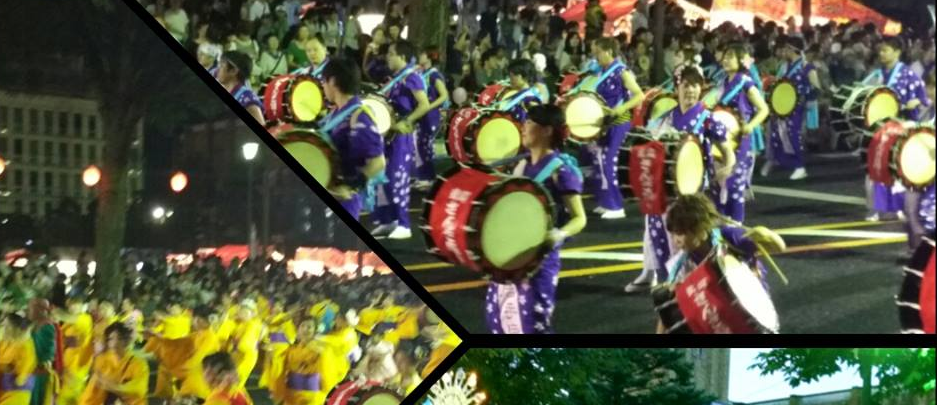This week, I have attended the IEA AIE 2016 conference, held at Morioka, Japan from the 2nd to the 4th August 2016. In this blog post, I will briefly discuss the conference.

About the conference
IEA AIE 2016 (29th International Conference on Industrial, Engineering and Other Applications of Applied Intelligent Systems) is an artificial intelligence conference with a focus on applications of artificial intelligence. But this conference also accepts theoretical papers, as well as data science papers.
First day of the conference
Two keynote speeches were given on the first day of the conference. For the second keynote, I have seen about 50 persons attending the conference. Many people were coming from Asia, which is understandable since the conference is held in Japan.

The paper presentations on the first day were about topics such as Knowledge-based Systems, Semantic Web, Social Network (clustering, relationship prediction), Neural Networks, Evolutionary Algorithms and Heuristic Search, Computer Vision and Adaptive Control.
Second day
On the second day of the conference, there was a great keynote talk by Prof. Jie Lu from Australia about recommender systems. She first introduced the main recommendation approaches (content-based filtering, collaborative filtering, knowledge-based recommendation, and hybrid approaches) and some of the typical problems that recommender systems face (cold-start problem, sparsity problem, etc.). She then talked about her recent work on extensions of the recommendation problem such as group recommendation (e.g. recommending a restaurant that will globally satisfy or not disapoint a group of persons), trust-based recommendation (e.g. a system that recommend products to you based on what friends that you trust have liked, or the friends of your friends), fuzzy recommender systems (a recommender systems that consider each item can belong to more than one category), and cross-domain recommendation (e.g. if you like reading books about Kung Fu, you may also like watching movies about Kung Fu).
After that there was several paper presentations. The main topics were Semantic Web, Social networks, Data Science, Neural Networks, Evolutionary Algorithms, Heuristic Search, Soft Computing and Multi-Agent Systems.
In the evening, there was a great banquet at the Morioka Grand Hotel, a nice hotel located on a mountain, on the outskirts of the city.
Moreover, during the dinner, there was a live music band:
Third day
On the third day, there was an interesting keynote on robotics by Prof. Hiroshi Okuno from the Waseda University / University of Tokyo. His team has proposed an open-source sofware called Hark for robot audition. Robot audition means the general process by which a robot can process sounds from the environment. The sofware which is the results of years of resutls has been used in robots equipped with arrays of microphones. By using the Hark library, robots can listen to multiple persons talking to the robot at the same time, localize where the sounds came from, and isolate sounds, among many other capabilities.
It was followed by paper presentations on topics such as Data Science (KNN, SVM, itemset mining, clustering), Decision Support Systems, Medical Diagnosis and Bio-informatics, Natural Language Processing and Sentiment Analysis. I have presented a paper about high utility itemset mining for a new algorithm called FHM+.
Location
The location of the conference is Morioka, a not very large city in Japan. However, the timing of the conference was perfect. It was held during the Sansa Odori festival, one of the most famous festival in Japan. Thus, during the evenings, it was possible to watch the Sansa parade, where people wearing traditional costumes where playing Taiko drums and dancing in the streets.
Conclusion
The conference has been quite interesting. Since it is a quite general conference, I did not discuss with many people that were close to my research area. But I met some interesting people, including some top researchers. During the conference, it was announced that the conference IEA AIE 2017 will be held in Arras (close to Paris, France).
==
Philippe Fournier-Viger is a full professor and also the founder of the open-source data mining software SPMF, offering more than 110 data mining algorithms. If you like this blog, you can tweet about it and/or subscribe to my twitter account @philfv to get notified about new posts.









Thank you for information. Can you please share some more information regarding Recommender Systems?
If you want some good introduction to recommender systems you can look at the book “Recommender Systems: The Textbook” by Charu C. Aggarwal
It is a recent book on this topic.
Pingback: A brief report about the IEA AIE 2019 conference - The Data Mining BlogThe Data Mining Blog
Pingback: IEA AIE 2018 conference (a brief report) - The Data Mining BlogThe Data Mining Blog
Pingback: A brief report about the IEA AIE 2020 conference | The Data Mining Blog
Pingback: Brief report about the IEA AIE 2021 conference | The Data Mining Blog
Pingback: Brief report about the IEA AIE 2022 conference | The Data Mining Blog